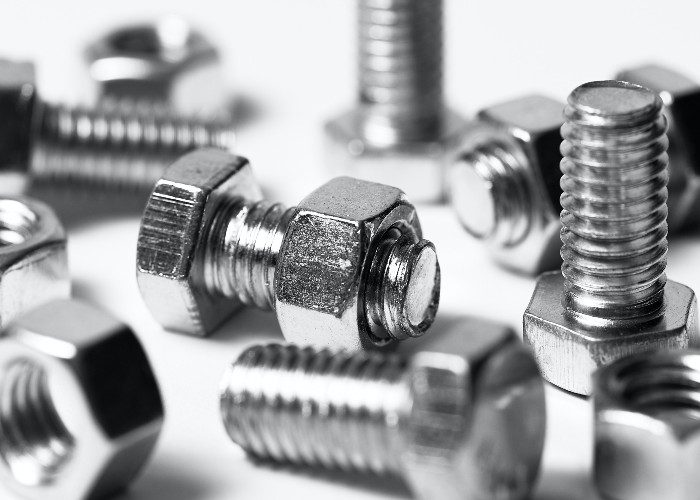A fastener is a hardware device that mechanically joins or affixes two or more objects together. Fasteners can be used in both static and dynamic applications, and come in many different shapes and sizes. In this comprehensive guide, we will discuss the different types of fasteners, as well as their applications and benefits, and how to choose the right fastener for your needs.
There are many different types of fasteners and fixings available on the market, and it can be difficult to understand the difference between them all. Here is a breakdown of the most common fasteners and fixings:
Nails
Nails are one of the oldest types of fasteners and are still widely used today. They are made from a variety of materials, including steel, brass, and aluminum, and come in different sizes and shapes. Nails are typically used to join wood or metal together, but can also be used to fasten other materials, such as plastic or fabric.
Screws
Screws are another type of fastener that has been around for centuries. They are made from a variety of materials, including steel, brass, and aluminum, and come in different sizes and shapes. Unlike nails, screws are designed to be inserted into a pre-drilled hole and tightened to create a secure connection.
Bolts
Bolts are similar to screws but are typically used to connect two pieces of metal together. They are made from a variety of materials, including steel, brass, and aluminum, and come in different sizes and shapes. Bolts typically have a head that can be tightened with a wrench, and a nut that is used to secure the bolt in place.
Nuts are usually made from steel, brass, or aluminum, and come in different sizes and shapes. They are threaded on one end and screwed onto a bolt to secure it in place.
Rivets
Rivets are another type of fastener that is typically used to connect two pieces of metal together. They are made from a variety of materials, including steel, brass, and aluminum, and come in different sizes and shapes. Rivets are inserted into a pre-drilled hole and then expanded to create a secure connection.
Washers
Washers are usually made from steel, brass, or aluminum, and come in different sizes and shapes. They are placed between a bolt and a nut to prevent the nut from loosening.
Pins
Pins are usually made from steel, brass, or aluminum, and come in different sizes and shapes. They are used to secure a connection between two pieces of metal.
The benefits of using fasteners
There are many benefits to using fasteners and fixings. They are strong and durable, and can provide a secure connection between two or more objects. Fasteners are also relatively easy to install and can be removed and reused if necessary. They are also rather inexpensive.
When choosing fasteners and fixings, it is important to consider the specific needs of your project. Different materials will require different types of fasteners. For example, wood or metal may require nails or screws, while plastic or fabric may require rivets or pins. It is also important to consider the size and weight of the objects you are
Fastener applications
There are many different applications for fasteners and fixings. Some of the most common applications include:
Construction
Fasteners and fixings are used extensively in construction, from attaching drywall to framing, to securing roofing and siding.
Furniture
Fasteners and fixings are often used in furniture, to assemble everything from chairs and tables to dressers and bed frames.
Automotive
Fasteners and fixings are used extensively in the automotive industry, from attaching parts to vehicles during assembly to repairs and maintenance.
Appliances
Fasteners and fixings are used in appliances, to secure everything from washing machine components to refrigerator shelves. Fasteners and fixings are used extensively in electronics, from attaching parts to circuit boards during assembly to repairs and maintenance.
Engineering
Fasteners and fixings are used extensively in engineering applications, from attaching parts to machinery during assembly to repairs and maintenance.
How to choose the right fastener or fixing for your needs
When choosing a fastener or fixing, it is important to consider the type of material you will be using it on, as well as the size and weight of the object you are attaching. Different materials require different types of fasteners, and the wrong type of fastener can damage the material or cause the connection to fail.
It is also important to consider the specific needs of your project. For example, if you need a fastener that can be removed and reused, then you will need to choose a different type of fastener than if you need a fastener that is permanent.
Finally, it is important to consider the cost of the fastener or fixing. Fasteners and fixings are available at a wide range of prices, so it is important to find one that fits within your budget.
